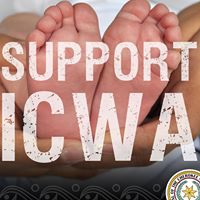As governor of Tesuque Pueblo, I know firsthand how vitally important it is to keep Native children in Native communities.
For generations, federal policies aimed at the erasure of Native culture focused on forcibly separating our children from their families and communities. These horrendous policies effectively disrupted the continuity of our Native culture by severing our connection to coming generations.
Despite these attacks, our communities have resisted and fought to protect our children through the centuries; we are still here. This year we are hopeful the New Mexico Legislature will protect Native families and communities and correct these historic injustices by creating a New Mexico state Indian Child Welfare Act.
After years of advocacy, the federal Indian Child Welfare Act was signed into law in 1978. The federal law was a response to the alarming rates of removal of Indian children from their communities. This act put into law minimum standards for the removal of Indian children from their families and placement in foster or adoptive homes outside their communities. These standards include a requirement for the child welfare system to engage with the child’s tribe, identify potential family or community foster care when necessary, and provide active efforts toward the child’s reunification with their parents or caretakers.
Through the years, federal law has ensured thousands of Native children could remain in their communities, surrounded by extended family and brought up in their own traditional culture. This law provides added protections against systems-level abuses directed at Indian children and puts an emphasis on placement with relatives or tribal community members.
But despite the protections the federal law has provided, New Mexico’s tribal nations still have some of the highest numbers of children and families impacted by the child welfare system. In addition, legal challenges to the federal law threaten the safety and well-being of Native families by undermining tribal sovereignty and the right to self-determination.
Responding to these challenges, representatives from all 23 tribal nations of the state, tribal ICWA workers, tribal-serving nonprofits, the Children, Youth and Families Department, and other advocates and stakeholders have worked for over two years to craft New Mexico state Indian Child Welfare Act policy. The result of this work is legislation that will provide lasting protection for our tribal nations and our children. Moreover, it will stand as an example of how New Mexico is dismantling systemic injustice by centering our Native children, family and communities first.
The goal of state ICWA policy is to ensure that we have legal protections at the state level regardless of what happens at the federal level and at the same time exceed the minimum standards established in 1978. We can take this opportunity to improve on those minimal standards by enacting best practices for Native families in ways that are unique to our state. We know that when we elevate the most vulnerable populations, we elevate the level of services for everyone involved in the system. By working across government systems, we can pave the way for our families to be healthy and whole.
As we head into the new year, I call on the Legislature and Gov. Michelle Lujan Grisham to advance this policy and correct the historical injustices against our children and Indigenous communities.
Our children are precious, and we must do everything possible to keep them in our communities surrounded by Indigenous culture and language. Together, we can build a lasting legacy that uplifts our children and ensures they will grow up to be our future ancestors.







No comments:
Post a Comment
Please leave a comment.